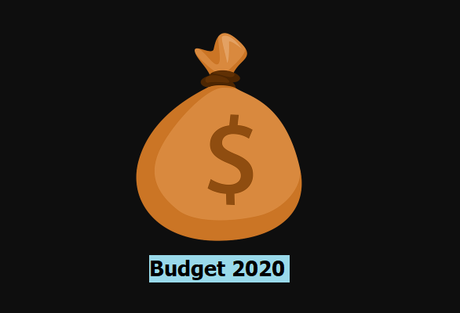Smt. Nirmala Seetharaman (The Finance Minister) presented the Union Budget 2020 on 1 st February 2020. She engrossed on reforms, aimed at energizing the Indian economy through a combination of short, medium and long-term measures.
Three prominent themes of the India Budget 2020 are Aspirational India, Economic Development for all and Caring Society.

Changes introduced to GST in Budget 2020
Here are some of the budget key highlights pertaining to .
1] Top 5 GST Amendments
- The person involved/benefited out of fake ITC shall also be liable for a penalty of 100% of the tax involved.
- Composition scheme has been restricted to taxpayers making the inter-state supply of service, supplies not leviable to GST. For the supplies through e-commerce operators, TCS is deductible.
- The date of the debit note will be standalone considered for availing input tax credit, delinked from the date of invoice.
- Powers provided to notify the form of TDS certificate and late fee (200 per day, maximum of 5,000) for non-issuance of TDS certificate has been waived off.
2] Other Important GST Amendments
- A provision has been made for the cancellation of voluntary GST registration for distinct persons.
- Power to condone the delay in applying for revocation of cancellation has been provided to the additional commissioner and commissioner for a period of 30 days.
- Refund due to Inverted tax prevalent for tobacco products has been barred with a retrospective effect from 1st July 2017.
- Applicability of a 6% CGST rate (total of 12% IGST rate) for the supply of pulley, wheels, and products used in Agri machinery between 1st July 2017 to 31st December 2018.
- Supply of fishmeal provided a retrospective GST exemption from 1st July 2017 to 30th September 2019.
- Provision to issue the removal of difficulty order by CBIC extended from earlier 3-year limit to 5 years w.e.f 1st July 2017.
- Board's approval will not be necessary for determining expenses in a special audit.
- Provision has been made to extend the time limit to return the inputs and capital goods from the job worker.
- Powers have been offered to notify the time and manner of issuing an invoice for a specific category of supplies or services.
- The entry in the Schedule II to the CGST Act on 'Transfer of business assets' will now onwards exclude the transactions done without consideration from it.
3] Impact of Budget 2020 on SMEs and Startups
- Reduced GST rates in India helped households save approximately 4% on their monthly expenses which is a major bonus.
- The Budget emphasized that MSMEs will become competitive. This will be done with the help of a National Logistics Policy that will be provided. The aim of this is to make it clear about what the state governments, union government, and regulators are responsible for. In addition, the focus will be shifted to employment generation and improving skills.
- The restructuring of debt permitted by RBI was supposed to end on 31st March 2020. The government has requested the RBI to extend 5 lakh MSMEs that profited from this move for another year until 31st March 2021.
- The finance minister stated that an app for financing loans will be launched and this will help the MSMEs. The reason is that the app will help minimize the cash flow mismatches and it will help remove the problems of delayed payments
- One of the difficulties faced by MSMEs is the working capital credit. The finance minister proposed that a scheme be introduced whereby the MSME entrepreneurs will be provided subordinated debt.
- The budgetary allocation for the MSME sector has risen 8% to Rs. 7572 crores. The finance minister has proposed that instead of Rs. 1 crore turnover, a turnover of Rs. 5 crores will require an audit by an accountant. This move will reduce the stress related to compliance with shopkeepers, small retailers, and traders that come under the MSME sector.
- A new scheme is proposed by the finance minister whereby MSMEs in certain sectors will be provided support of Rs. 1000 crore. These sectors include technology upgrades, auto components, R&D, pharmaceuticals, and business strategies. The move is going to make the export more competitive.
Conclusion
The union budget highlights by finance minister Smt. Nirmala Sitharaman focused on making India more competitive and boosting the domestic industries. While allocations increased in many sectors and considerations were made to reduce or take away anything that was not in favor, some sectors saw cuts too.
The finance minister assured that wealth creators will be protected with this budget while incomes will get a boost as people will have an improved purchasing power.
The finance minister made changes to the GST and promised that the budget will help revive domestic growth by focusing on various aspects of it.
You may like.
